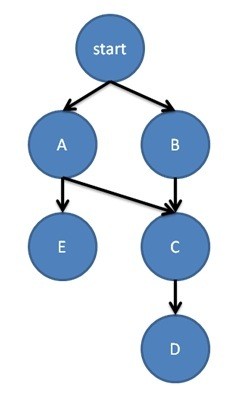Task Dependency
Term Definition of Task Dependency Task Dependency is a relationship in which a task or milestone relies on other tasks to be performed (completely or partially) before it can be performed. This is also referred to as a logical relationship. A logical relationship can be a dependency between project tasks or between tasks and milestones. […]
Term Definition of Task Dependency
Task Dependency is a relationship in which a task or milestone relies on other tasks to be performed (completely or partially) before it can be performed. This is also referred to as a logical relationship. A logical relationship can be a dependency between project tasks or between tasks and milestones.
In project management there are four possible types of logical relationships: finish to start (one activity must finish before the “to” activity can start), finish to finish (the activity must finish before the “to” activity can finish), start to start (one activity must start before the “to” activity can start), and start to finish (one activity must start before the “to” activity can finish).
 What is Task Dependency?
What is Task Dependency?
Understanding task dependency is a key element in critical path management. It does not matter how good a project schedule is or how well the resources perform in the execution of tasks in that schedule, if critical dependencies associated with the project are not included in the description of the effort, they represent considerable risk to delivering project value.
Effective project management begins with the end in mind. The goal of a project is always successful completion. In critical path management, the longest chain of dependent project tasks with zero float represents the critical path. Once the end is understood, Network Building (a multi-pass approach designed to assure that no key dependencies for the project are missed) quickly shifts to a focus on task dependency is required to get there.
The clear definition of deliverables serves as a high-level work breakdown structure, but rather than developing the individual hierarchical branches of a work breakdown structure, Network Building shifts to dependency identification. To the extent that project tasks are highly interdependent efforts, this emphasis on what is needed to develop a handoff is a more straightforward way of building a holistic set of dependencies than trying to search across the lower levels of branches of a traditional work breakdown structure. Task dependency also assures an emphasis on deliverables and handoffs through their identification as necessary inputs, with clarity further enhanced by a strong preference for verbose task descriptions (Jacob, 1998).
